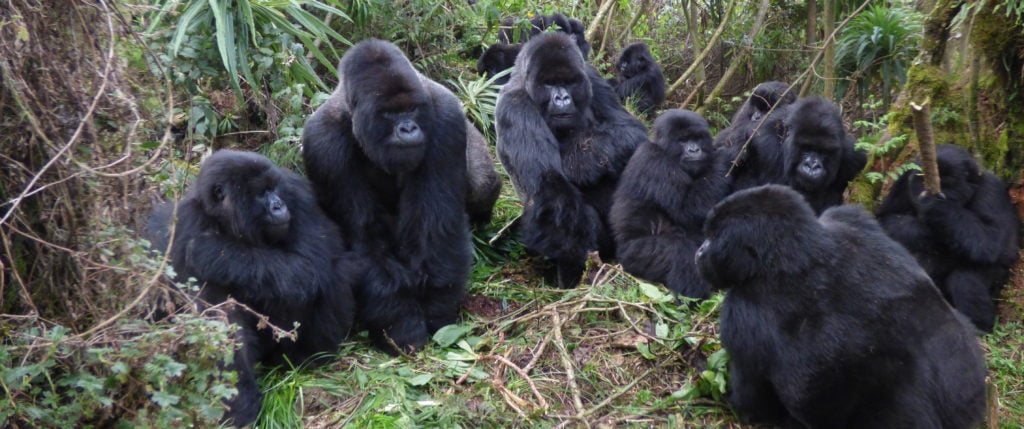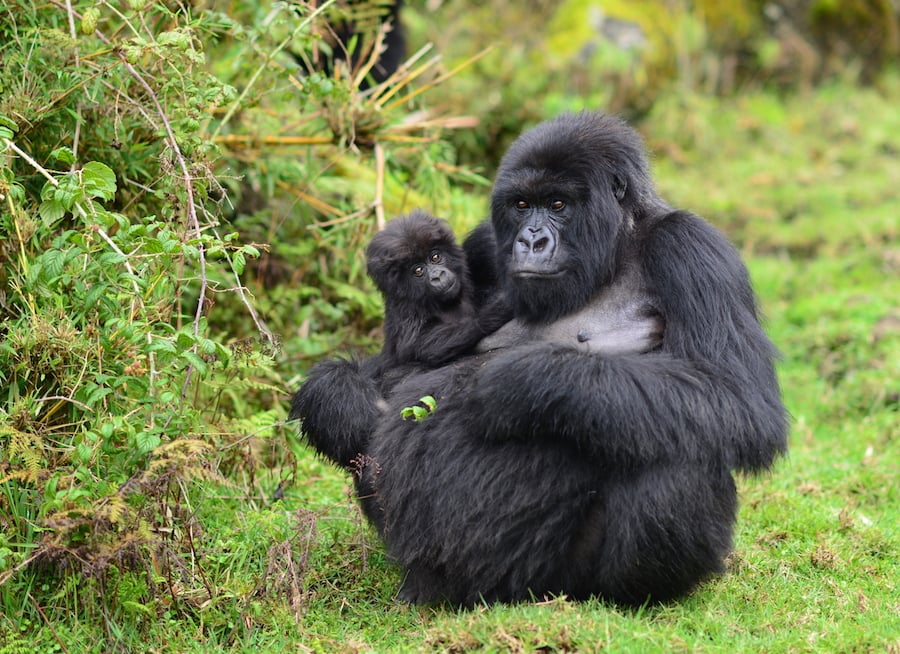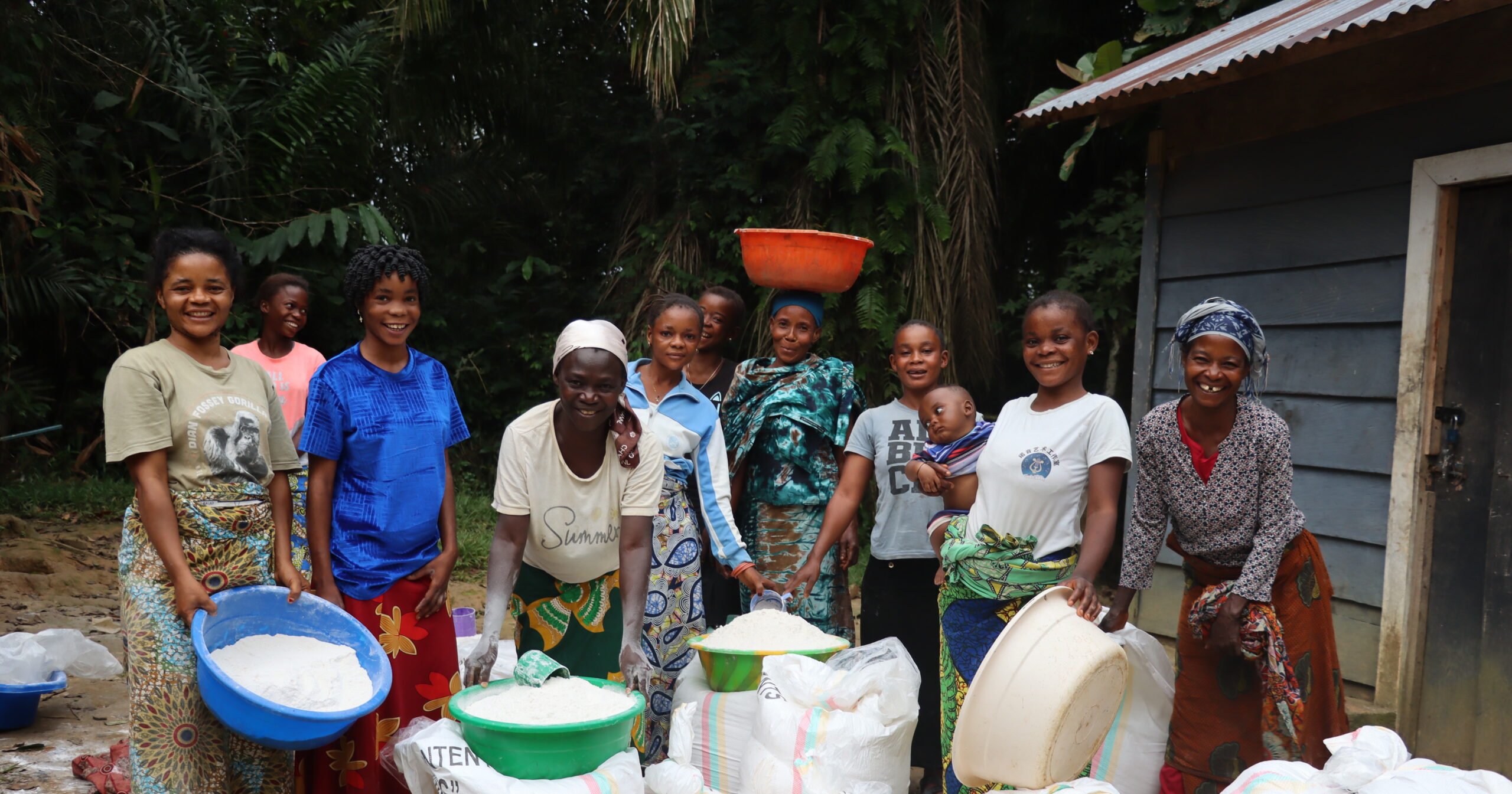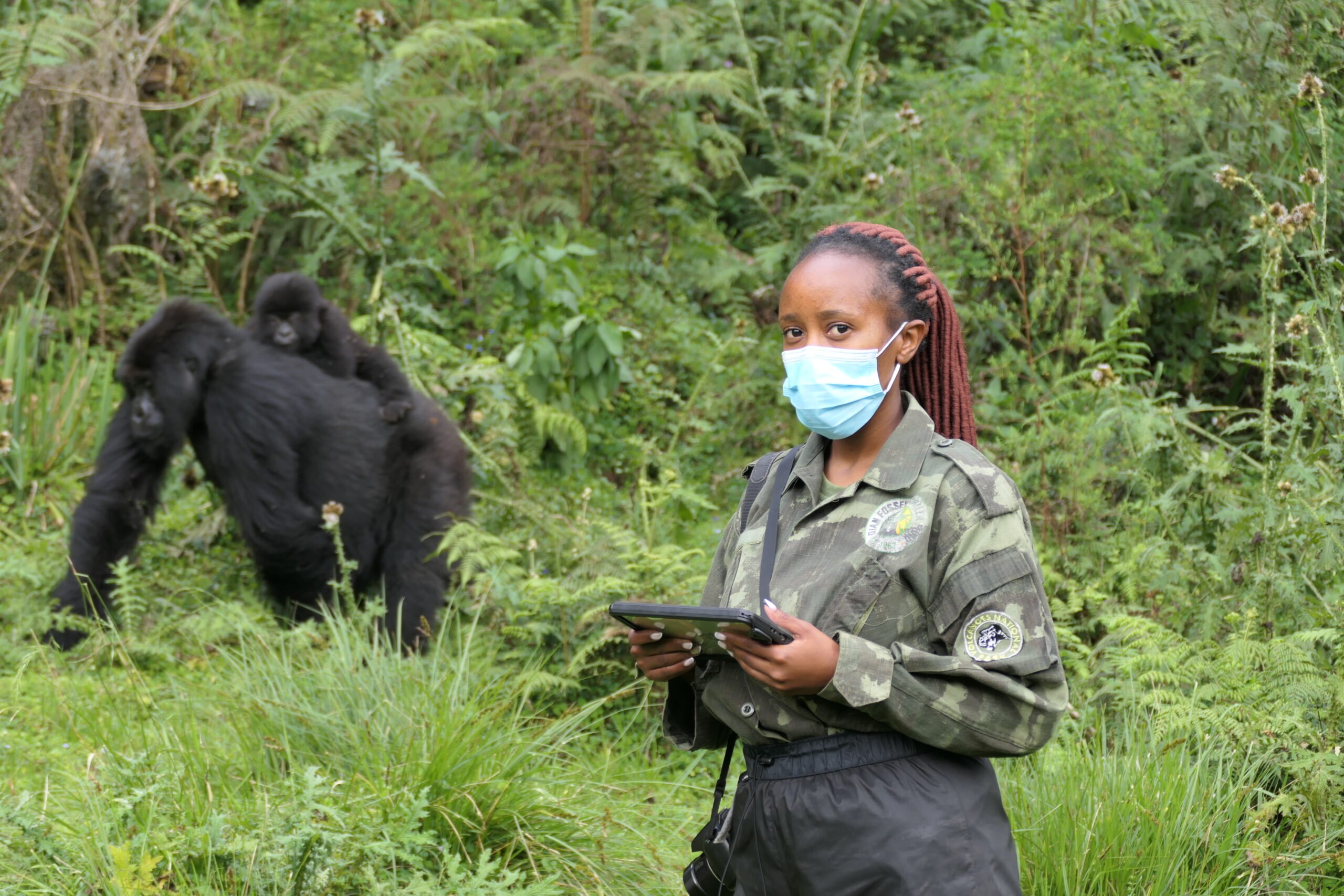
Fact 1: Gorillas are super-moms!
Like other primates, gorilla mothers have very strong bonds with their infants and provide complete care for them during their first few years. This includes carrying them, nursing, being a source of warmth and comfort, and protecting them from the surrounding environment. Because of the energetic requirements of raising an infant, gorilla moms only reproduce every four years and despite their mom’s incredible care, our long-term data show that only 75% of individuals survive infancy.
Fact 2: Gorilla moms let others babysit, but not that often
Babysitting of infants by other individuals in the group is much less common than in humans or even some other species of primates. Usually it is done by females related to the mom or by older siblings. Watch a video of Ukwiyunga babysitting Pasika’s feisty infant here!
Fact 3: Pregnancy in gorillas
The average gorilla pregnancy lasts about 8 ½ months, slightly less than human pregnancies! Unlike people, gorilla stomachs are naturally quite large (remember, they eat 40+ pounds of vegetation every day!), so it can be difficult to identify a pregnancy just by looking at their bellies. However, there are other indicators that have been noted. In expecting mothers, appetite changes occur, and even morning sickness has been reported in pregnant gorillas under human care.
Fact 4: Like human mothers, gorilla moms will go to great lengths to protect their offspring
Female mountain gorillas typically spend their entire lives in groups, relying on a silverback to provide general protection to the group, primarily from other gorilla males who often target infants when they interact with a group. If for some reason the group disbands, usually after the death of the silverback, females will transfer into another group. But mountain gorilla mother Pasika surprised us a few years ago. After her group disbanded, she traveled alone with her 1-year-old infant, Mashami. We assume this was to protect him, as given his age, if she had transferred into the group, the dominant male would likely have killed Mashami so that Pasika would have started cycling again.
After 7 months of being solitary, Pasika was found in the company of lone silverback Turatsinze, and unfortunately without her infant. While Mashami did not survive, it is amazing to see what Pasika did for her infant and is something we have only seen once in the Fossey Fund’s 50-year history.
Fact(s) 5: While gorilla and human motherhood can be similar, it is also different in many ways!
Gorilla moms generally do not put their infants down for the first six months! This helps keep the infant safe and warm, lets mom keep track of the baby during active moments like foraging or traveling, and provides comfort for the infant.
Infants sleep in the same nest as their mother. However, once their mom has another infant, usually after 4 years, young gorillas must learn to sleep on their own.
Gorilla moms nurse their infants for more than three years! While infants usually start experimenting with solid food around 5 months, and regularly eat solid food at 8 months, they supplement their diet by nursing for another two years.
Sign up for the latest gorilla news and updates!







